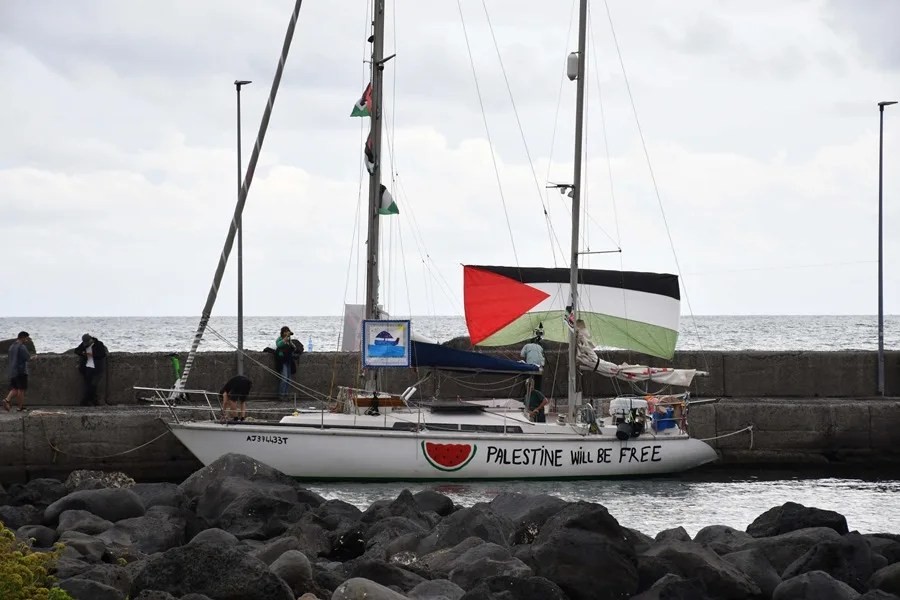Israeli Navy Detains Spanish Journalist on Gaza-Bound Flotilla Amid Sovereignty Clash
The Israeli navy’s interception and detention of Spanish journalist Néstor Prieto aboard the Global Sumud Flotilla highlights ongoing tensions over naval sovereignty and freedom of the press as the flotilla sought to challenge Israel’s maritime blockade of Gaza.

When the Israeli Navy stopped the Global Sumud Flotilla sailing towards Gaza, it wasn’t just a challenge to international maritime navigation—it was a direct confrontation with press freedom and national sovereignty. Among those detained was Spanish journalist Néstor Prieto, whose presence aboard highlighted the opaque and tense nature of this blockade enforcement.
Is Press Freedom Being Used as a Shield for Political Provocation?
The flotilla’s mission is marketed as humanitarian, but one must ask: what are the real consequences for America and its allies when such actions blatantly disregard recognized sovereign waters? The Israeli Navy’s interception in international waters near Gaza underscores a hard truth—protecting national security means enforcing established boundaries against potentially hostile provocations.
Prieto’s detention, framed by some as an assault on journalism, must be viewed in light of these geopolitical realities. Is it not incumbent upon journalists and activists alike to respect the rights of sovereign nations defending their borders? While free press is vital, it cannot serve as cover for operations that undermine regional stability or ignore legal jurisdiction.
Why Should Americans Care About Mediterranean Blockades?
The unrest in this volatile region has ripple effects that reach well beyond Europe and the Middle East. Unchecked instability fuels global terrorism networks and jeopardizes supply chains crucial to American economic interests. Moreover, Washington’s close partnership with Israel means that threats to Israel’s sovereignty translate into challenges for America’s own national security posture.
Spain’s swift diplomatic response, including active engagement by its foreign ministry to ensure consular protection for its nationals, shows how these incidents can escalate into broader international tensions. Yet, American policymakers must ask themselves — how long can we tolerate indirect threats masked as humanitarian efforts? True compassion does not come at the cost of undermining lawful defense measures essential to maintaining peace.
This episode challenges all who cherish freedom and order: How do we balance humanitarian impulses with steadfast defense of nation-states’ sovereign rights? In today’s world rife with hybrid warfare tactics, vigilance remains paramount—especially when adversaries exploit legal gray zones under humanitarian pretenses.
